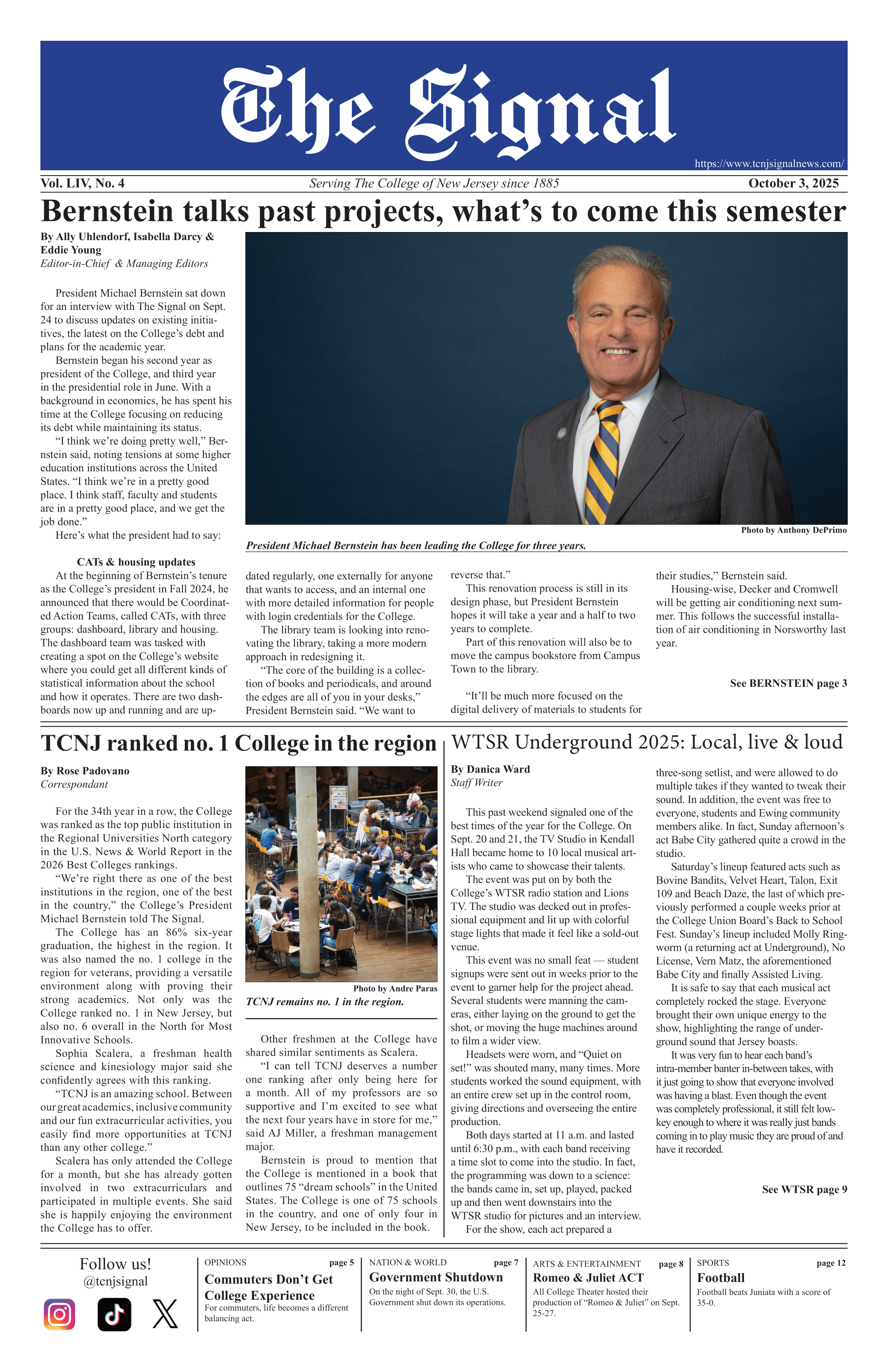By Courtney Wirths
Features Editor

The evening’s keynote speaker was Selena Rezvani, leadership consultant, speaker and author of the award winning book, “Pushback: How Smart Women Ask — and Stand Up — for What They Want.”
Rezvani spoke to a room of primarily female students about negotiating, taking risks and making a good impression.
“Women negotiate four times less often than men,” Rezvani said in her introduction, noting certain differences in employment strategies between males and females. “You’re sitting in the dugout watching everyone else play, (but this) is not improving your game.”
In light of this, Rezvani offered the career advice she wishes she had known herself. She said that some of the greatest successes come from the big risks women can take as students, a period when they’re young and with nothing to lose.
Rezvani, although now a successful leadership mentor, initially went to school for social work.
“I love to empower people,” she said.
Once she began volunteering, Rezvani found it difficult to find an area that fit her best. Ideally, she wished she could use her skills for enabling people in the work place.
“I finally stopped trying to make it work,” Rezvani said, steering herself away from social work altogether.
Instead, she found herself taking a position in management consulting. In this position, she was able to empower workers – especially women – and encourage them to reach for the positions and goals they really wanted.
“I used to think success was getting from A to B quickly, that it was linear,” Rezvani said. However, it was only after interviewing female leaders for an independent study in her MBA program at John Hopkins University that Rezvani learned her true passion: helping women move themselves into leadership roles and taking ownership of their paths.
According to a study conducted by Hewlett Packard, men will apply to a position when they have only 60 percent of the necessary skills for the job whereas women will only apply if they have 100 percent of the skills.
“Here’s a challenge,” Rezvani said to students. “Think of four brand attributes that you’d want to have – that you’d want someone to use to describe you.”
She explained that everyone has a leadership brand, described as the way individuals chose to communicate and lead others.
Students came up with adjectives such as determined, dependable, innovative and tenacious.
“One of my most important revelations was that I could be assertive and kind or nice,” Rezvani said.
She explained to students that potential employees should communicate in a way that conveys who they are both expressively and professionally.
“The workplace is becoming increasingly casual,” Rezvani said. “Resist being that casual. I want you to err on the side on formality.”
In addition to speaking to a room full of alumni and female professionals, Rezvani also took an hour to speak with students and answer questions about the art of negotiation.
“We’re aiming to help propel women into top leadership roles,” said Mary Lynn Hopps, professor at the College and director of the Women in Learning and Leadership (W.I.L.L.) Program. W.I.L.L. was also a cosponsor to Wednesday’s event.
When asked by a student how to know when one is speaking up too much, she told students, “I wish it was simple – that I could give you a formula.” She proceeded to ask the audience to consider the environment in which they are working.
“How do people debate? How do people spar?” she said. “Be savvy about the culture – the unspoken rules.”
She told students that 67 percent of businesses listed confidence and decisiveness as the most valued quality in an employee; 28 percent listed sharp speaking skills and the ability to be articulate; and 5 percent listed appearance.
Though only 5 percent of companies surveyed listed appearance as the most important quality, Rezvani stressed the truth behind the expression, “dress for the job you want, not that job you have.”
“I’m making it so you don’t have to use your imagination to see me in that next role,” she said of dressing for success in the workplace.
Finding your dream career, however, is a process of trial and error, according to Rezvani. She advised students to try to expose themselves to a few industries that excite them and ask themselves where they have inkling to learn more.
“My regrets,” she said, “are whenever I told myself ‘you can’t.’”
Rezvani closed the discussion by telling the women of the room to vocalize their interests and be ready to put themselves out there.
“My hope for all of you is that you be bold,” Rezvani said.







